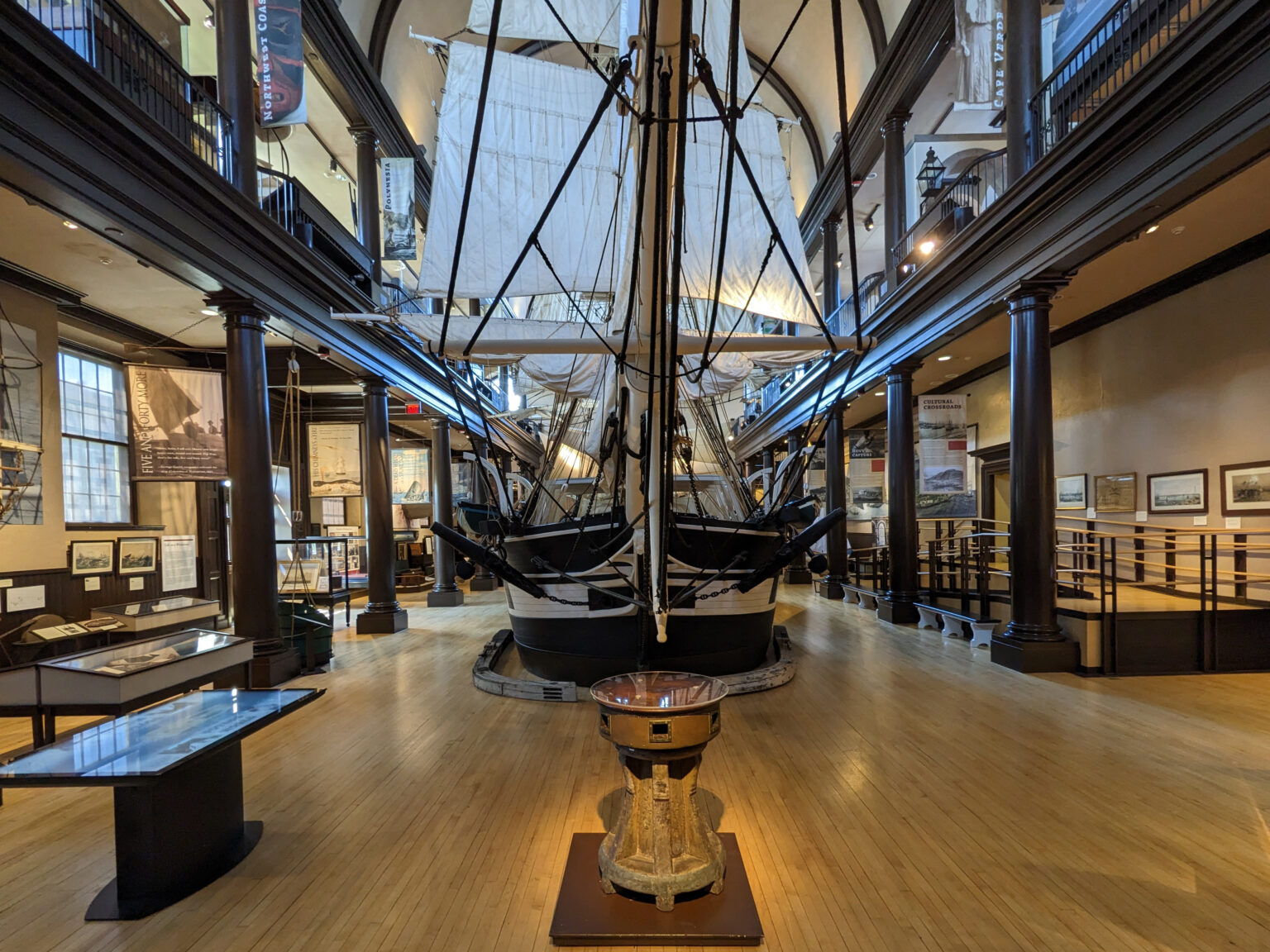Up early this morning and walked down to the local market where we had a great breakfast
and coffee. Took back some goodies for our friends.
After our crafting time was done it was time to start thinking about lunch. Paul and Nancy wanted to take us to a place they think is the best lobster roll ever. The place is called Knuckle Heads. :-) Loved the atmosphere in this place. We ordered the lobster roll and it was my first time to have it. Talk about delicious, yes it was very yummy!!! While there they showed us how to play Keno which I loved. Nancy did pretty well with her winnings.

Now on to New Bedford MA where we are going to tour around the shops and visit the Whaling Museum.
The term “bethel” comes from two Hebrew words, “Beth” and “El.” Beth means “House” and El means “God”, so it is a Seamen’s House of God or a Seamen’s Church. Because whaling was so dangerous, many whalemen felt the need to attend services at the Bethel prior to shipping out on whaling voyages.
The Pulpit
Ironically, there is one element of Moby-Dick that Melville wrote that has helped to make the Whalemen’s Chapel famous. When Melville writes of the Whalemen’s Chapel, he describes the pulpit as being suggestive of the front of a ship. But the pulpit when he visited was not prow-shaped; it was a typical New England box-style pulpit.
The pulpit in the Whalemen’s Chapel today is not due to Melville’s book, but to the movie which was released in 1956. The director of the movie, John Huston, was Irish and he went to Ireland to film the movie. The pulpit seen in that movie is unmistakably the prow of a ship. When the movie was released, it was hugely successful and one result was that Americans wanted to visit New Bedford to see the Seamen’s Bethel with that pulpit in the Whalemen’s Chapel. The only problem was they arrived expecting to see something that did not exist. And they were not happy to discover an ordinary pulpit in the Chapel.
The New Bedford Port Society listened to the grumblings of visitors for some years before deciding to build a mock-up of the pulpit described in the book and seen in the movie. The idea was that they would test visitor reaction, and if it was positive, then a more authentic-looking pulpit would be done. The new pulpit was first seen by visitors in 1961 and since the pulpit met expectations, the grumblings stopped. The pulpit remains today because visitors are generally satisfied with it and since the Seamen’s Bethel relies on donations to operate, there are more important areas for funds to be used than building an authentic-looking pulpit.
Nancy had a classmate named Brad that sat behind her in school. Brad was a whaler on the Sol E Mar. You will see a classmate's name, who went down on the Sol E Mar. Nancy got emotional when she saw this. Rest in Peace Brad..........Ironically, there is one element of Moby-Dick that Melville wrote that has helped to make the Whalemen’s Chapel famous. When Melville writes of the Whalemen’s Chapel, he describes the pulpit as being suggestive of the front of a ship. But the pulpit when he visited was not prow-shaped; it was a typical New England box-style pulpit.
The pulpit in the Whalemen’s Chapel today is not due to Melville’s book, but to the movie which was released in 1956. The director of the movie, John Huston, was Irish and he went to Ireland to film the movie. The pulpit seen in that movie is unmistakably the prow of a ship. When the movie was released, it was hugely successful and one result was that Americans wanted to visit New Bedford to see the Seamen’s Bethel with that pulpit in the Whalemen’s Chapel. The only problem was they arrived expecting to see something that did not exist. And they were not happy to discover an ordinary pulpit in the Chapel.
The New Bedford Port Society listened to the grumblings of visitors for some years before deciding to build a mock-up of the pulpit described in the book and seen in the movie. The idea was that they would test visitor reaction, and if it was positive, then a more authentic-looking pulpit would be done. The new pulpit was first seen by visitors in 1961 and since the pulpit met expectations, the grumblings stopped. The pulpit remains today because visitors are generally satisfied with it and since the Seamen’s Bethel relies on donations to operate, there are more important areas for funds to be used than building an authentic-looking pulpit.

The Whaling Museum was right down the street from the church. The amount of history in the museum is plenty. You could spend many hours in there reading about the whaling that was going on here in Massachusetts.
Inside the Whaling Museum, there is a half-scale model of the whaling bark. Lagoda is the largest ship model in existence.
Dinner at the Sail Loft tonight. We have had the best time ever with these guys. A trip we will always remember. Thanks for a great time!!
%20-%20Copy.jpg)









